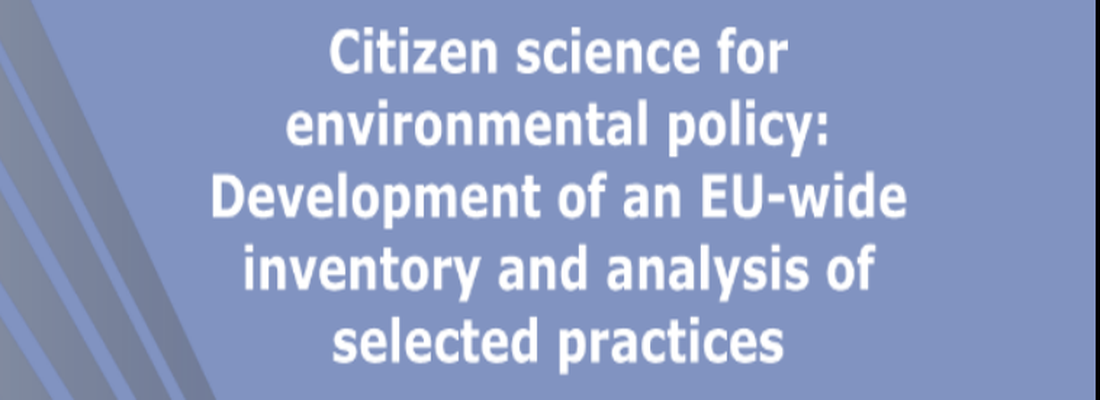
Citizen science for environmental policy. Development of an EU-wide inventory and analysis of selected practices - Study
In January 2018 the European Commission launched a study to examine the influence of citizen science on environmental policies and sustainable development. The study was carried out by the French company Bio Innovation Service, together with the Ibercivis Foundation and the Natural History Museum in London. The report defines citizen science as the non-professional participation of volunteers in the scientific process, either in the data collection stage or in other phases of research, and refers to its important potential as a source of relevant information to define environmental policies and to meet the growing social demands for more participatory decision-making. The aim of the research was to understand whether citizen science projects in environmental matters, together with their scientific and social objectives, are indeed significantly supportive of environmental policies.
To this end, the first objective was to draw up an inventory of citizen science projects of interest to environmental policy and to assess how they contribute to the Sustainable Development Goals (SDAs) established by the United Nations (UN) General Assembly. To this end, 503 projects were identified through desk research and an EU-wide survey. The second objective was to assess the conditions under which citizen's science can best support such policies, by further analysing a selection of 45 projects through the study of 94 characteristics.
The analysis shows that there are models relevant to environmental policy, characterised by a diversity of partnerships and approaches to community sustainability, data infrastructures and funding. Although most of the projects surveyed are medium-sized and NGO-led, there are also projects funded by the EU or national governments and led by academia. Of the 45 projects analysed in depth, 32 (71%) effectively influence one or more environmental policies, such as problem definition, early warning or compliance with directives, among others. The analysis provides a series of recommendations to enhance the contribution of citizen science to environmental policy.
Publish information
| Authors: | Fermin Serrano; Francisco Sanz; Maite Pelacho; Anne Turbé; Jorge Barba; Shailendra Mudgal; Lucy D. Robinson; Margaret Gold; |
| Publisher: | Luxembourg: Publications Office of the European Union |
| Year of publication: | 2018 |
| License: | © European Union, 2018 Reuse is authorised provided the source is acknowledged. |
| DOI: | 10.2779/961304 |